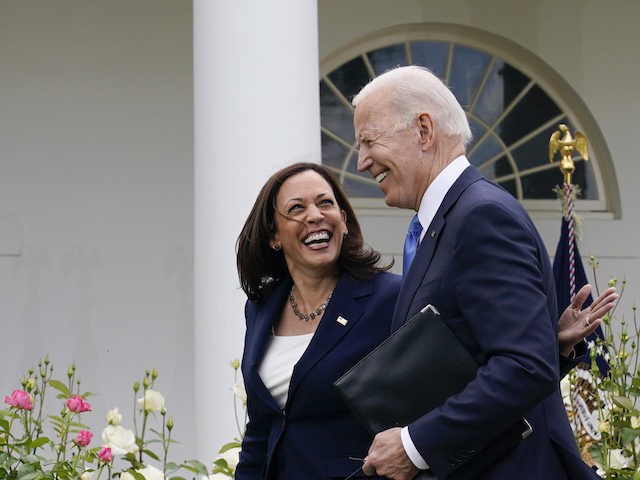Inflation signals climbed in August even while the pace of growth in manufacturing unexpectedly slowed in August, according to a survey from the Federal Reserve Bank of Philadelphia.
The Philadelphia Fed’s survey of manufacturers showed the current activity index slipping from 21.9 to 19.4 in August, the regional Fed bank said Thursday.
Economists had forecast an increase in the index to 25.
Yet the slowdown in the pace of growth did not slow down price increases. To the contrary, the price indexes climbed in August.
The index of current prices received by manufacturers for their products increased 7 points to 53.9, its highest reading since May 1974. The index for prices paid for components and materials edged up 2 points to 71.2, after dropping 10 points last month from June’s 42-year high.

Vice President Joe Biden makes a phone call on a train at Union Station in Washington, Tuesday, Feb. 8, 2011, as he headed to an event in Philadelphia to tout plans to improve the nation’s infrastructure. (AP Photo/Evan Vucci)
The median forecast for manufacturers’ prices was for an increase of 5.0 percent over the next four quarters, the same as when the question was last asked in May. The firms’ actual price change over the past year was 3.0 percent.
Companies expect that their employee compensation costs will rise 4.0 percent over the next four quarters, the same as in May.
When asked about the rate of inflation for U.S. consumers over the next year, the median forecast was 5.0 percent, an increase from 4.0 percent in May. The median forecast for inflation over the next ten years was 3.0 percent, the same as in May.
The index for new orders increased, while the current shipments index dropped. The current employment index rose, as did the average workweek index rose 6 points to 24.5.
Other than the inflation gauges, most of the other indexes of future business activity showed slowing. The index for future general activity decreased, the second consecutive decline after reaching a 30-year high in June. Nearly 46 percent of manufacturers expect growth over the next six months, down sharply from 59 percent last month. Twelve percent expect a decrease in activity.
The future new orders index fell alongside the future shipments index fell. The future employment index declined but remains elevated. Over 48 percent expect to increase employment in their manufacturing plants over the next six months, compared with only 6 percent that foresees employment declines.
The survey covers manufacturing businesses in an area with 13.3 million people in Delaware, southern New Jersey, and eastern and central Pennsylvania.


COMMENTS
Please let us know if you're having issues with commenting.